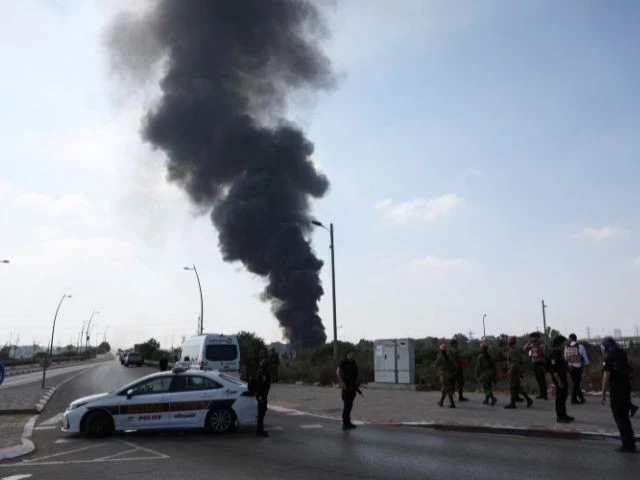Pakistan and 19 Muslim Nations Condemn Israeli Aggression on Iran, Urge Immediate Ceasefire
In a united diplomatic move, Pakistan and 19 other Muslim-majority countries have strongly condemned Israel’s intensifying military aggression against Iran, which has escalated significantly since June 13, 2025. The joint statement was issued by the Foreign Ministers of Algeria, Bahrain, Brunei Darussalam, Chad, Comoros, Djibouti, Egypt, Iraq, Jordan, Kuwait, Libya, Mauritania, Pakistan, Qatar, Saudi Arabia, Somalia, Sudan, Türkiye, Oman, and the United Arab Emirates.
According to Pakistan’s Ministry of Foreign Affairs, the ministers denounced Israel’s actions as a flagrant violation of international law and the principles enshrined in the United Nations Charter. The statement called for an immediate ceasefire and a return to diplomacy to prevent further regional destabilization.
“The recent Israeli aggression against Iran poses a serious threat to peace and stability in the region,” the joint declaration stated. The ministers stressed the importance of respecting national sovereignty and territorial integrity, and advocated for the peaceful resolution of all disputes.
A key part of the joint statement included a call for the establishment of a Middle East Zone free of nuclear and other weapons of mass destruction. The ministers urged all regional countries to adhere to the Treaty on the Non-Proliferation of Nuclear Weapons (NPT), reinforcing global efforts to ensure lasting regional security.
READ MORE:
IRGC Strikes Target Aman and Mossad Headquarters in Israel
The foreign ministers also emphasized the importance of protecting nuclear facilities under the supervision of the International Atomic Energy Agency (IAEA), warning that attacks on such infrastructure not only breach international law but also violate humanitarian norms under the 1949 Geneva Conventions.
In addition, the statement urged a prompt return to diplomatic negotiations regarding Iran’s nuclear program, reaffirming that dialogue remains the only sustainable solution to the current crisis. “Military means cannot bring about a lasting resolution. Only diplomacy and adherence to international law can ensure peace,” the statement emphasized.
The ministers also reaffirmed their commitment to maritime security and the freedom of navigation in international waters, calling for an end to activities that threaten these vital principles.
Meanwhile, the Group of Seven (G7) nations also weighed in on the escalating conflict. In a joint statement released at their summit, the G7 leaders called for a broader de-escalation in the Middle East, including a ceasefire in Gaza. The statement was issued after U.S. President Donald Trump approved a revised version of the declaration, but abruptly left the summit, warning Iranians to “flee Tehran.”
The G7 statement read: “We urge that the resolution of the Iranian crisis leads to a broader de-escalation of hostilities in the Middle East, including a ceasefire in Gaza.” This appeal coincided with the fifth consecutive day of deadly strikes between Israel and Iran, as Tehran demanded the U.S. restrain Israeli Prime Minister Benjamin Netanyahu, and European leaders scrambled to revive stalled nuclear negotiations.


